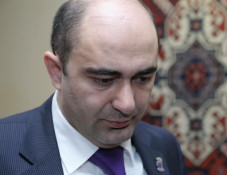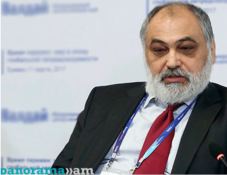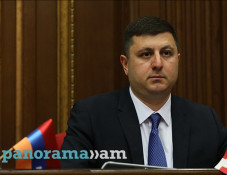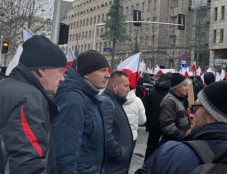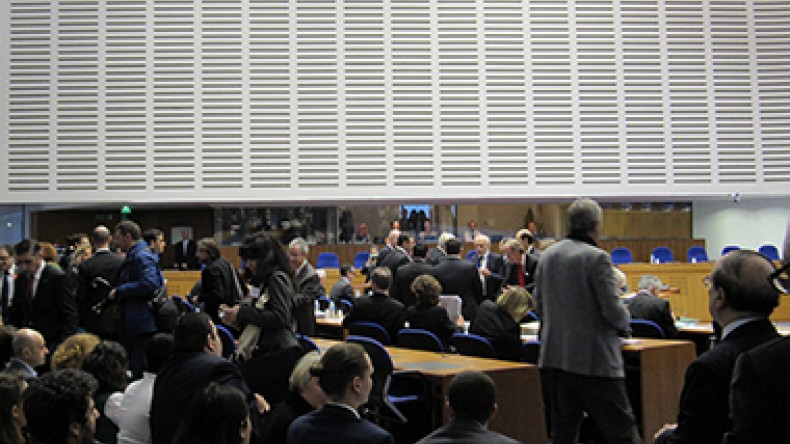
Turkish human rights NGOs: ECHR Grand Chamber Perincek judgment is not a “green light” to deny Armenian Genocide
“The Human Rights Association and the Memory Center will persevere, independently of the (European Court’s) Grand Chamber’s decision, in their efforts to confront the past, expose historical facts, and pave the way for the restitution of justice in Turkey, as well as in their struggle—on the basis of the international law of human rights—against genocide denial, which continues to threaten the lives of and incite hatred against the Armenian community in Turkey”.
Two prominent Turkish human rights NGO’s -- The Human Rights Association and the Memory Center – both third party interveners in the European Court of Human Rights case of Perincek v. Switzerland, concerning the controversial Turkish left-wing politician, Dogu Perincek, alleged right of freedom of expression in denying the historical fact of Armenian Genocide in Switzerland during his press conferences and public rallies in 2005, published a press statement regarding the recent ruling of ECHR Grand Chamber, laying out their respective positions on the matter.
The statement says that the allegations that the Grand Chamber judgment is a “proof” that Armenian Genocide denail enjoys protection under Artilce 10 of the Convention is a “blatant and intentional” distortion of the ruling pronounced by the Court.
“In the ruling, this lie is explicitly refuted in Paragraph 102 of the section “The Scope of the Case”: “As regards the scope of the case, the Court underlined that it was not required to determine whether the massacres and mass deportations suffered by the Armenian people at the hands of the Ottoman Empire from 1915 onwards could be characterised as genocide within the meaning of that term under international law; unlike the international criminal courts, it had no authority to make legally binding pronouncements on this point.” It is clear from this passage that the question of whether the mass deportations and massacres of Ottoman Armenians constitute a genocide was left outside the scope of the case”.
The full text of the statement below.
In the hearing on 15 October 2015, the Grand Chamber of the European Court of Human Rights pronounced its final ruling on Perinçek v. Switzerland, which was retried after the appeal to ECHR’s previous decision. According to the ruling, the Grand Chamber found that Doğu Perinçek’s declarations impugning the Armenian Genocide are protected by the freedom of expression, and concluded that the Court of Lausanne violated the European Convention on Human Rights, clause 10 on the freedom of expression, by sentencing Doğu Perinçek on account of his statements.
Three human rights organizations, the Turkey-based Human Rights Association (HRA) and the Truth Justice and Memory Center (the Memory Center), as well as the Toronto-based International Institute for Genocide & Human Rights Studies (IIGHRS), appealed to the ECHR in July to present a Third Party Intervention file to the Grand Chamber. After due consideration, the ECHR approved this request.
As the HRA and the Memory Center, whose appeal to make a case was accepted by the ECHR, we declare that the Grand Chamber’s ruling does not invalidate the rationale we presented in our Third Party Intervention file.
The ECHR Grand Chamber’s recent verdict will by no means invalidate the veracity of our warnings that genocide denial cannot be considered solely within Swiss borders and that it will exacerbate threats against the Armenian society in Turkey, including their right to life.
The ECHR Grand Chamber deliberated on the issue from what can be called a technical point of view and asked whether the Swiss court breached clause 10 of the European Convention on Human Rights by convicting Perinçek on account of his declarations, concluding that the said events did not constitute incitement to hatred within Swiss borders.
The consequences of the issue outside of Switzerland, especially in the country where the genocide took place, were not taken into consideration. And yet, ECHR decisions are binding throughout the confines of the European Council; they set a precedent. The decision will thus cause problems in the resolution, in accordance with universal human rights laws, of the cases of human rights violations caused by genocide denial in all of these countries, including Turkey.
In certain segments of the Turkish media, both the initial ECHR ruling in favor of Perinçek’s freedom of expression and the Grand Chamber’s ruling on 15 October 2015 are presented as evidence for the ECHR’s confirmation of the view that there was no Armenian Genocide; in other words, for their claim that the ECHR also denies genocide.
The above constitutes a blatant and intentional distortion, and in fact a lie: blatant, because the Grand Chamber decision has been published, for all to see. In the ruling, this lie is explicitly refuted in Paragraph 102 of the section “The Scope of the Case”: “As regards the scope of the case, the Court underlined that it was not required to determine whether the massacres and mass deportations suffered by the Armenian people at the hands of the Ottoman Empire from 1915 onwards could be characterised as genocide within the meaning of that term under international law; unlike the international criminal courts, it had no authority to make legally binding pronouncements on this point.” It is clear from this passage that the question of whether the mass deportations and massacres of Ottoman Armenians constitute a genocide was left outside the scope of the case.
This prevarication, that the ruling of the ECHR Grand Chamber disproves the “claims” on the Armenian Genocide, is intentional as well as blatant, because it aims to encourage individuals, circles, and even public servants who provoke hatred against the Armenians in Turkey; it seeks to obstruct investigations on such declarations or acts, and to prevent the perpetrators from being brought to justice.
Most recently, special operations units’ announcements on the megaphone in Cizre, “You are Armenian, you are all Armenians, you are Armenian bastards,” clearly demonstrate the connection between the denial of the Armenian Genocide and the current living conditions of the Armenian people, who are deprived of the security of life. As human rights defenders, we witness this connection every single day. The fact that the Armenian people have no security of life in Turkey, a country of denial, is evidenced by the murders of Hrant Dink, Sevag Balıkçı, and Maritsa Küçük in Samatya, all of which took place in the last few years. In fact, these cases will most probably be taken to the ECHR, which will in turn have to take into consideration the consequences of genocide denial in Turkey.
The ruling of the Grand Chamber of the European Court of Human Rights was restricted to a narrow interpretation of clause 10 of the European Convention on Human Rights, and contented itself with investigating whether Perinçek’s pronouncements (which were worded rather differently than the violent language he uses in Turkey), “what was done does not constitute genocide,” fall within the scope of the freedom of expression. Racism against Armenians in Turkey was included neither in the ECHR’s deliberations, nor in the rationale for the ruling, as also evident in the ECHR press release on the ruling. Furthermore, the decision was reached by 10 votes against 7, which demonstrates the disagreement within the Grand Chamber on the question.
The Human Rights Association and the Memory Center will persevere, independently of the Grand Chamber’s decision, in their efforts to confront the past, expose historical facts, and pave the way for the restitution of justice in Turkey, as well as in their struggle—on the basis of the international law of human rights—against genocide denial, which continues to threaten the lives of and incite hatred against the Armenian community in Turkey.
Newsfeed
Videos









